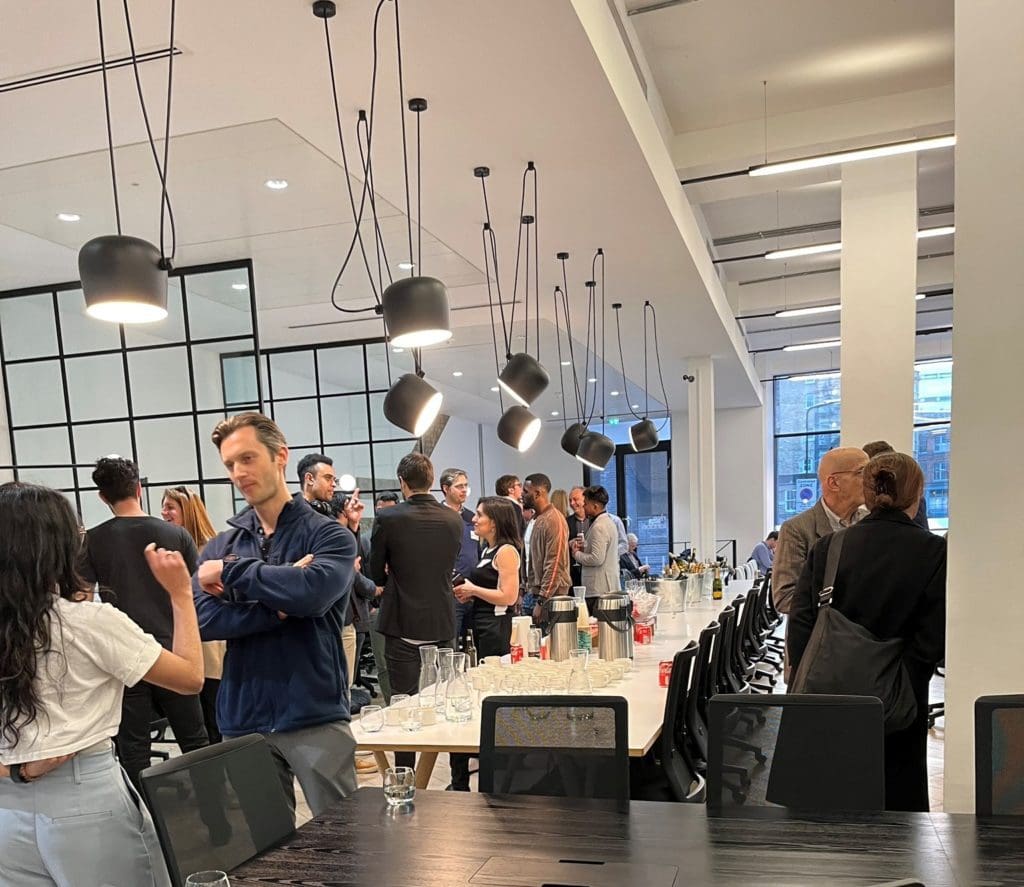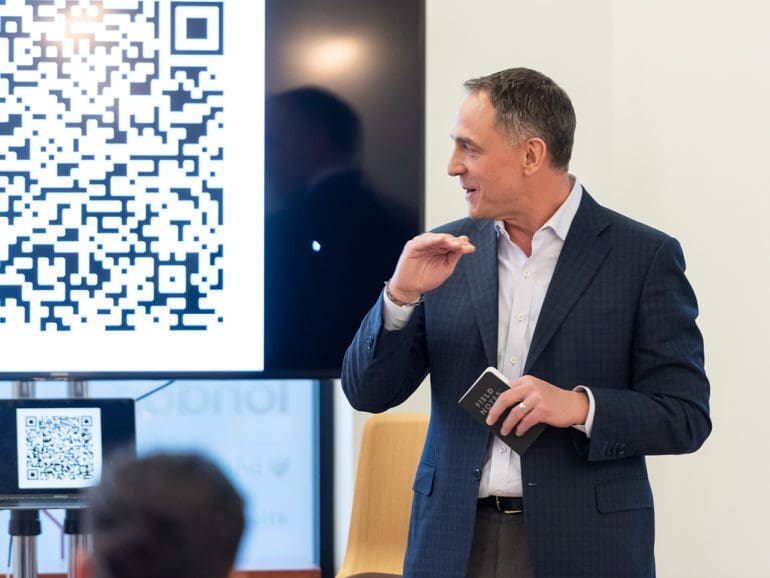LONDON, UK — While the past two years meant a reduction in most in-person gatherings, The Crypto, Fintech, and Banking Meetup was a chance for keen industry insiders to get back to a level of normal, with drinks, vibrant discussions, and networking.
Brought together by LendIt Fintech at Rise London, everyone gathered to share their knowledge, from Web3 newcomers to industry leaders and experts.
It kicked off with an introduction from Bo Brustkern, Co-Founder and CEO at LendIt Fintech. He welcomed everyone to the meetup and discussed the plans of LendIt Fintech.
He then introduced the speaker for the evening.

Lex Sokolin, Head Economist at ConsenSys, discussed his career journey, the radicalization of trade finance, and MetaMask.
Sokolin started by asking the crowd if they were “Web3 natives,” “crypto skeptics,” or both. It was clear from the hand raises that a diverse audience was present. The conversation that followed reflected this.
Sokolin said he started his career at Lehman Brothers to “get that first bankruptcy under my belt.” He held various roles on Wall Street, including with Barclays and Deutsche.
He also hand-coded websites and programmed generative abstract art. He founded the fintech practice at Autonomous, a financial services equity research firm (bought by Bernstein), where he focused on artificial intelligence, blockchain, and mixed reality.
He spent the last three years building out MetaMask, which has 30 million users. So there was a lot to unpack.

MetaMask as robust machine
Sokolin explained that MetaMask set out to launch a token for a project, and it ended up being much more of a machine.
MetaMask is an open-source project, a software cryptocurrency wallet used to interact with the Ethereum blockchain. A browser extension or mobile app allows users to access an Ethereum wallet, which interacts with decentralized applications; this is massively enabling the infrastructure for Web3. There is no distinction between where a defi or NFT platform starts and where MetaMask starts. It is all about transacting, as your wallet is essentially you. MetaMask is just your signature.
A lot of the discussion stood on questions such as: How do we rigorously engineer tokens? How do you create an investment philosophy that makes sense? And how to define ConsenSys Web3 strategy? But a key takeaway was the discussion on custody vs. non-custody.
Custody vs. non-custody
Sokolin had a fascinating or “frustratingly philosophical” answer to Brustkern’s question about how the custody vs. non-custodial models interact.
He spoke about the significant shift in how we see power.
Since the turn of the century, politics has been left or right. Now, politics is about populism, essentially the disrespect for authority. To a large extent, we can connect this to Trumpism or Facebook, but either way, we can all agree it’s happening.
The legacy of the Web 2 evolution is a “robotic nightmare,” where dopamine-addicted users are being farmed for their attention through social media. Although we are aware of this, we are passive to the addiction because the sites are free in return.

Web3 is different. For Sokolin, he does not see it as an issue of left or right but rather institution (e.g., Facebook, governments, banks) vs. individualism.
In Web3, there is a real sense of “Hobbesian hyper-capitalism.”
Sokolin is referring to a world of anarchy: “I steal your stuff good luck, I broke into your house, oh well, you signed this NFT by mistake. Great, it’s mine.”
Although this capitalist architecture is massively efficient, it lacks rules. In the same vein, married to Web3’s politics is a hyper emphasis on a communist utopia, where workers are coming together to own their means of production.
These two philosophies are incompatible in Web 2 but are merging in Web3, Sokolin said.
Industry will adapt
The world of finance will naturally adapt to the changes in world politics. They lean into the language and assumptions of this new world order, being a bridge rather than causing the innovation, Sokolin said.
Overall, Sokolin and Brustkern were confident in the present opportunities and future prospects for finance. The meetup was a great opportunity for people to be inspired and learn about the infrastructure of the future.
“It was a brilliant launch. We had space for 50 people, and 145 signed up to join, so we had to turn a lot of people away. Note to self: we’re going to need a bigger boat,” said Brustkern.
“There was high energy, exceptional networking, and a great sharing of ideas. Lex Sokolin was a stirring speaker who provided context and controversy to the crypto-crossover conversation. I provided the alliterations, and my colleagues Sumit, Jaya, and Helen proved the commensurate hosts. We are already planning our next meetup, targeting early May.”
For LendIt, this is just the start of their plans on cultivating discussions on Web3 in Europe. There will be more meetups and talks, most notably Merge on Oct. 17-18, 2022, the first conference and expo dedicated to the impact of Web3 on financial institutions and how to harness this shift to gain a competitive advantage.


